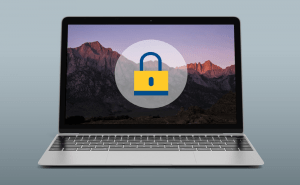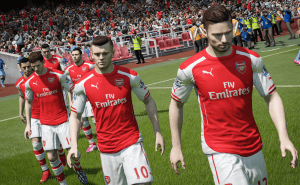 Deciding Which Mac Suits You Best
Deciding Which Mac Suits You Best
Just to be clear, this article isn't going be something like: "Buy the new MAC XYZ753, it's the best". This post will just give you a few tips on how to choose the Mac that will offer the most appropriate solution for your day-to-day tasks at a reasonable price.
Why do I think this is important? Because unless you are really rich, Mac isn't exactly the cheapest laptop out there, and if you make an investment to buy a computer, then you should make sure you get your money's worth. Just like when you buy a car or a house, there are several factors you need to take into account before spending your hard-earned cash:
Desktop or Laptop?
The first thing you need to consider is whether you want a desktop or a laptop (MacBook). This choice is generally very simple because the major selling point for laptops is their mobility. Even the fact that you can easily take them from one room to another is pretty important. If mobility is not what you really need, desktops are generally better as they offer better performance and durability, are easier to maintain (fewer cooling issues, replacing parts is easier, etc.), and they are usually cheaper than their laptop counterparts.
Budget
The next thing you should decide upon is how much money you are willing to spend on your new Mac. This can be tricky, because there will come a time when you will be very tempted to go a little bit over the initial budget. In my experience, going 10-12% over the initial budget is usually a good thing, because when it comes to computers, after a certain price range the cost difference between good and better hardware components is pretty small, while the distinction between the performance they're offering can be considerable.
What do you need it for?
Probably the most important decision factor is what you want to do with your new Mac. Just like it makes no sense to buy a Formula 1 car to drive on a one-lane street, buying a high-end computer and only using it to watch YouTube videos is futile. The process of selecting the right computer might be a bit time-consuming, but it's worth the effort. So:
- If you are a casual user who only wants to watch some movies, listen to music and surf the Web, an average Mac computer is exactly what you need. A basic i5 CPU (you can select i3 if your budget is limited) with somewhere around 4GB of RAM should satisfy your needs perfectly. The reason why I didn't advise a low-end computer is that in this market things become outdated incredibly fast. In my opinion, it's worth it to spend a little more on a Mac that will serve you for a few years than having to buy a new one in a shorter period of time.
- If you have a passion for video games, you really need to go as close to a high-end computer as possible. The most important things for you are the graphics card and the RAM. Graphics cards with 2 to 4 GB (according to what you are willing to spend) should be what you need (the more memory the better). What to look out for: the GPU is crucial as it determines the capabilities of your card. Unfortunately, they generally have annoying names that don't provide info about their actual specifications so, as a general rule, the higher the number next to the name is, the better the performance (Ex: GT 740 is better than GT 730). Other things to consider are Direct X 11 support and a decent cooling (a true gaming graphics card should have at least 2 coolers). Buying RAM is very simple: the higher the number of GB is, the better the frequency will be. You probably need at least 8 GB of RAM for your goals. Don't forget that when it comes to games, desktops are far better than laptops and discrete graphics cards are out of the question. One last piece of advice: don't cheap out on the power source as it's actually quite important, and make sure it is capable of supplying your Mac with the power it needs to run in optimum conditions.
- If you want to use it for work-related tasks and your job requires high computing capacities, you should focus on Macs with high-end processors. So, jobs like video processing, DNA sequencing, password decrypting, image reconstruction, etc. require a lot of calculus from your computer and that's the CPU's job. If you can afford it, choose an overclockable i7 processor. The more GHz and the bigger the cache is, the better it is. For processors with the same number of GHz, more cores are better for multitasking, while a smaller number of cores will yield for better results on a single, intensive job. You will also need at least 8GB or RAM and a hard disk with enough room to store your projects.
Final Step
Don't forget to look at the specs of any Mac that you are considering to buy, and make sure it is what you really need. Furthermore, use Google, Bing, Yahoo, or whatever search engine you are comfortable with, to see complete details and feedback from other buyers. I know that it might seem a bit complicated, but there are only a few specs you should take into account when making your choice, and the simple rule "the bigger the better" applies to the vast majority of them.




